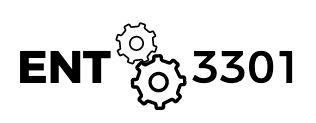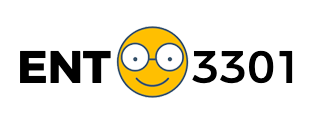During the semester, you will have an opportunity to complete several (fun) extra-credit assignments that can help you improve your final grade significantly! DO THEM!
You can think of these extra credit assignment as an opportunity to replace (or supplement) some of your grades. For example, if you miss a quizzes (10 points), completing one extra credit assignment will help you gain all points back. If you miss 1 point on ten quizzes, completing one extra credit assignment will make your grade perfect on all five quizzes.
Cumulatively, you can earn up to 70 points, which is 7% of your final grade (I know, the best deal in the history of college extra credit deals!). To put this in perspective, you can get a B on every single assignment in the class, but if you finish all extra credit assignments, you will end up with an A in the class.
More importantly, most of these assignments are are super fun (like the video parody one), and students usually enjoy working on them. For some assignments, you can also work with other students in groups, which can make it even more fun (e.g., video parody).
My goal here is to help you feel in greater control of your grade this semester, and hopefully reduce some of your anxiety associated with testing, especially the quizzes. Research shows that greater sense of control is one of the strongest predictors of well-being, effort, and success in life. Approaching your studies with more positivity can also lead to more creativity.
You can do all extra credit assignments. However, you can submit only one assignment per week up until Dec 1.
Have fun!
Extra Credit 1: Article Presentation (10 points)
For this assignment, you will have to find an online article from a plausible source (e.g. www.economist.com) and write a short one-page summary relating its content to a concept studied in class (e.g., entrepreneurial mindset, creativity, revenue models, etc.) You will then present it to the class by creating a short video that I will post on Canvas (video should be no more than 5 minutes). The article should be no older than the first day of class and presentations will start on the sixth week of classes. In addition to your presentation, you will have to write a short 1 and ½ pages (1.5 inch margins) reflective essay. The first part of your essay should be a summary of the article. In the second part of the essay you should clearly discuss how the article relates to the course content. Your essay should focus on the latter—i.e., how the content of the article relates to classroom material.
Extra Credit 2: Pop Culture Project (10 points)
You can write a two-page paper that describes a movie, television show, song, commercial, or even video game that you think would be an interesting addition to the course. I am interested in new ideas, so the media must be from the past 2-4 years. Your papers should describe how the media relates to the course material and how it could best be used in class.
Extra Credit 3: Music Video Parody (10 points)
In this activity, you can create an entrepreneurship parody song by writing NEW lyrics to a popular song and filming a music video. For full credit, you must substantially rewrite the lyrics so that the song features all original content. The vocalist must also sing to recorded music (no unaccompanied versions). All students in the group must make a cameo in the video. You can work in groups of up to 4 students. You can see an example here [watch here]
Extra Credit 4: Fake it Till You Make It (10 points)
Watch the HBO documentary The Inventor: Out of Blood in Silicon Valley (2019) (also available on Hulu) and write a 1.5-page reflective paper (Times New Roman, 12 pts, 1.5 spacing, standard margins). In your paper, you need to answer the following questions: (1) quickly summarize the documentary (what is it about); (2) how was Elizabeth Holmes able to scam so many experienced investors /world leaders and get away with it; i.e., is it her personality, naïveté of investors, or something else; (3) you often hear the advice “fake-it-til-you-make-it,” which is common in the Silicon Valley and other innovation hubs. Edison, for example, one of the greatest inventors of all time, had a similar philosophy -- and, more or less, was a scammer -- hiding failures and faking results until eventually getting (some) of his inventions to work. Steve Jobs, who was Elizabeth Holmes' idol, also believed that you should try until you succeed at all costs. What are your thoughts on the “fake-it-til-you-make-it” culture -- do you find it disturbing or critical for entrepreneurship? If so, how do you reconcile the Theranos scam with your own values; (4) what are the key take-aways from the movie for you?
Extra Credit 5: Interview an Entrepreneur (30 points)
For this assignment, you will have to interview an entrepreneur of your choice. The goal of this assignment is to gain insights about starting and running a business from an actual entrepreneur/mentor. I recommend that you choose an entrepreneur in an industry that is personally interesting to you. A quick note: While you may think that it is difficult to find an entrepreneur to interview, my experience suggests that most startup founders will be excited to meet with you and share their experience. The most challenging thing will be finding a time to meet. Ideally, I want you to meet the entrepreneur in their company, so you can observe how the venture operates. While you can choose any type of business, you will gain the most of your choose a business that is more established (at least several years old) and employee at least a few people. For this assignment, you will have to write a 3 page paper (Times New Roman, 12 pts, 1.5 spacing, standard margins), answering the following questions: (1) briefly describe the entrepreneur (what is their background, what were their motivation to start the business, what were the main challenges of starting, running and growing the business; did they experience different challenges during different stages of starting and running their venture); (2) describe the company (product, market, value proposition) and what makes it unique; (3) based on what we've learned in class, what are some recommendations you can make to improve the product/service, business model, marketing, etc. and (4) what did you learn from the interview (about your own potential as an entrepreneur or interest in becoming one).
BONUS EXTRA CREDIT: Unleash Your Creativity (varies)
What? Extra credit on top of extra credit? That's crazy. Look, if you want to earn points by being more creative, I am all for it. Make your own assignment. Use your imagination and come up with something creative and pitch it to me. I am happy to consider it. However, this is not an invitation to be lazy. Rather, it's an invitation to do something that is more closely related to your interests and will allow you to pursue something that you find more meaningful. Before you do this assignment, you will need to discuss it with me.
BONUS BONUS EXTRA CREDIT: PODCAST REFLECTIONS (20 points, 10 points each)
OK. Now it's getting out of hand - a bonus, bonus extra credit? That's a concept that our student brains can't even comprehend -- it's like bending the time-space continuum when you pass through two black holes circling each other. Hey, working hard, having fun, and spreading positivity is a win for all of us! After all, I do want all of you to be successful, and if you are willing to work hard and learn why not do it, right?
For this assignment, you will have to listen and summarize a podcasts. You can choose any one of the following podcasts. Note, that you can only summarize two podcasts (for a total of 20 points).
1. Use Your Money to Buy Happier Time: https://hbr.org/podcast/2019/01/use-your-money-to-buy-happier-time (Links to an external site.)
2. How do you know if a side hustle is worth going into?: https://www.mixcloud.com/mixergy-startupstorieswith1000/1703-how-do-you-know-if-a-side-hustle-is-worth-going-all-in-on/ (Links to an external site.)
3. How not to pitch a billionaire: https://podcasts.apple.com/us/podcast/gimlet-1-how-not-to-pitch-a-billionaire/id913805339?i=1000318522342 (Links to an external site.)
4. Eric Schmidt--Lessons from a Trillion Dollar Coach: https://tim.blog/2019/04/09/eric-schmidt/ (Links to an external site.)
5. How can I successfully prelaunch online business: https://100mba.net/mba1435/ (Links to an external site.)
6. Bumble: Whitney Wolfe: https://www.npr.org/2019/04/12/712909267/bumble-whitney-wolfe (Links to an external site.)
7. How one CEO creates joy at work: https://hbr.org/podcast/2018/12/how-one-ceo-creates-joy-at-work (Links to an external site.)
After you listen to the podcast, you will have to write a short 1-page reflective paper summarizing what you learned from the podcast. All essays must be submitted on Canvas. Please type your essays using Times New Roman, 12 pt, standard 1" margins, 1.5 spacing. Your essay should be at least one-page long.

